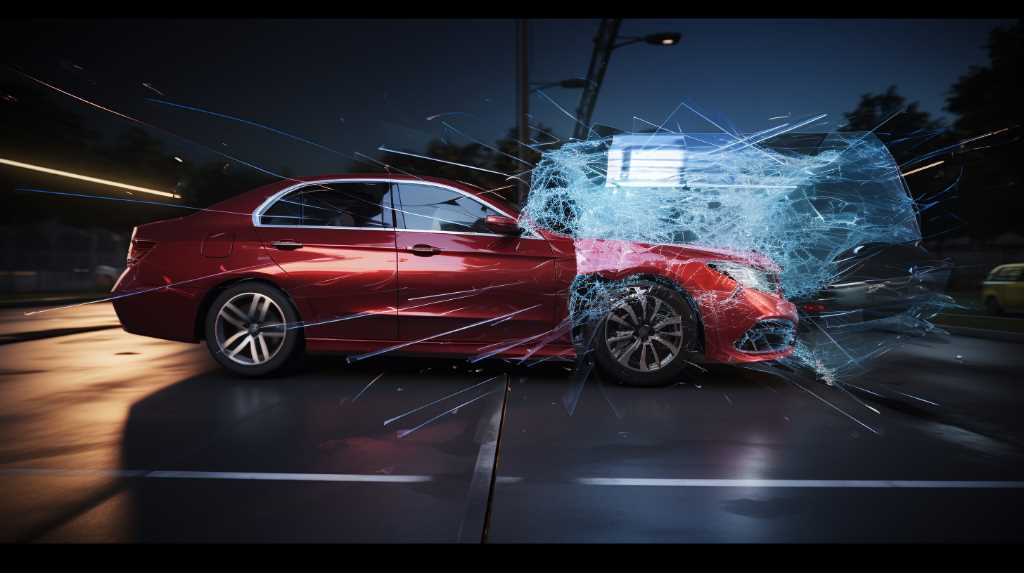
Even in car accidents where the vehicles are moving slowly, usually less than 10 miles per hour, people can still get hurt. It’s important to know that our bodies are sensitive and can get injured from small bumps and jolts. Common injuries from these low-speed crashes are things like whiplash and neck pain. This happens when your head snaps back and forth quickly, which can stretch or tear the muscles and tendons in your neck. Even if your head doesn’t hit anything, your brain can still get shaken up inside your skull, leading to a concussion.
You might also get bruises or scrapes from hitting the seatbelt or airbag. After the scare of a crash, some people feel really anxious or have a hard time getting over the fear, which is a sign of emotional stress or even post-traumatic stress disorder. And sometimes, pain from the accident doesn’t go away quickly. It can turn into a long-term problem that needs more doctor visits.
Remember, even a small car accident can have a big impact on your health, so it’s important to see a doctor if you’re feeling any pain or discomfort afterward. And, of course, always wear your seatbelt – it’s your best defense against injuries if an accident does happen.
Whiplash and Neck Strain
Whiplash is a common injury in small car crashes. It happens when your neck snaps quickly forward and then back, which can hurt your neck muscles and ligaments. Even in accidents at very slow speeds, like 5-10 miles per hour, this can happen.
If you have whiplash, you might feel pain and stiffness in your neck, get headaches, or sometimes feel dizzy or see blurry. A doctor can tell if you have whiplash by checking you and maybe using scans like X-rays, CT scans, or MRIs.
To get better, you might need to manage the pain, go to physical therapy, and do exercises that help your neck move properly again and get stronger.
Concussion Symptoms
After a minor car crash, people might show signs of a concussion. This can happen even if they didn’t hit their head because the sudden stopping and starting of the car can shake the brain inside the skull.
They could feel confused, get headaches, or pass out. Other signs can be dizziness, feeling sick to the stomach, being really tired, not liking bright lights or loud sounds, and having trouble seeing properly. It might also be hard for them to focus or remember things.
It’s important to know that these signs might not show up right away—they can start hours or even days later. That’s why it’s key to be careful and watch out for these symptoms.
If someone has these signs after a car accident, they should go see a doctor right away to make sure they don’t have a serious brain injury and get the help they need.
Soft Tissue Bruising
Soft tissue bruising frequently occurs in low-impact car accidents as passengers experience abrupt forces that strain muscles and blood vessels. These injuries, also known as contusions, result from the sudden deceleration or acceleration of the body causing capillaries beneath the skin to rupture and bleed.
The clinical manifestation includes tenderness, swelling, and discoloration, which typically evolve from reddish to bluish and yellowish hues as the bruise heals. Diagnosis is generally clinical, based on a thorough medical history and physical examination.
Management of soft tissue bruising is conservative, primarily focusing on the R.I.C.E. protocol—rest, ice, compression, and elevation—to mitigate pain and facilitate recovery. Persistent or unusually large bruises should be evaluated for complications such as hematomas or underlying fractures.
Psychological Trauma
After a minor car crash, some people don’t just get hurt physically—they also suffer from mental health issues, which can be hard to see but are just as serious. These issues can take many forms, like stress from the trauma (PTSD), feeling anxious or sad, or being scared to drive or ride in a car again.
Doctors have found that even small accidents can cause big worries and emotional pain. Sometimes these feelings start right after the crash, but other times they pop up later, which can make it tricky to figure out and help the person. It’s really important for experts who know about mental health to check on someone who might be going through this after a crash.
Getting help early, like talking to a therapist who can teach ways to cope or taking medicine if needed, can really help in the long run and make getting better easier.
Chronic Pain Issues
Many people who get into minor car crashes, about one in three, end up with chronic pain. This pain sticks around and might not be noticeable right after the accident.
It’s often because of injuries to muscles or ligaments, like whiplash, which regular scans like X-rays can’t always detect. The pain can last a long time because the nerves get extra sensitive after the injury.
It’s really important to start treating these injuries early with things like physical therapy and counseling to stop the pain from getting worse. Doctors might use a mix of medicine, changes in daily habits, and special treatments to help lessen the pain and make life better for those dealing with it.
Conclusion
Even small car crashes can cause serious injuries like whiplash, neck pain, head injuries, bruises, mental stress, and lasting pain. These injuries are important because they can affect your health for a long time if they’re not treated properly.
It’s important to see a doctor and maybe get physical therapy to help you recover. Also, learning more about how to prevent and treat these injuries can help people who get hurt in these common but often overlooked accidents.